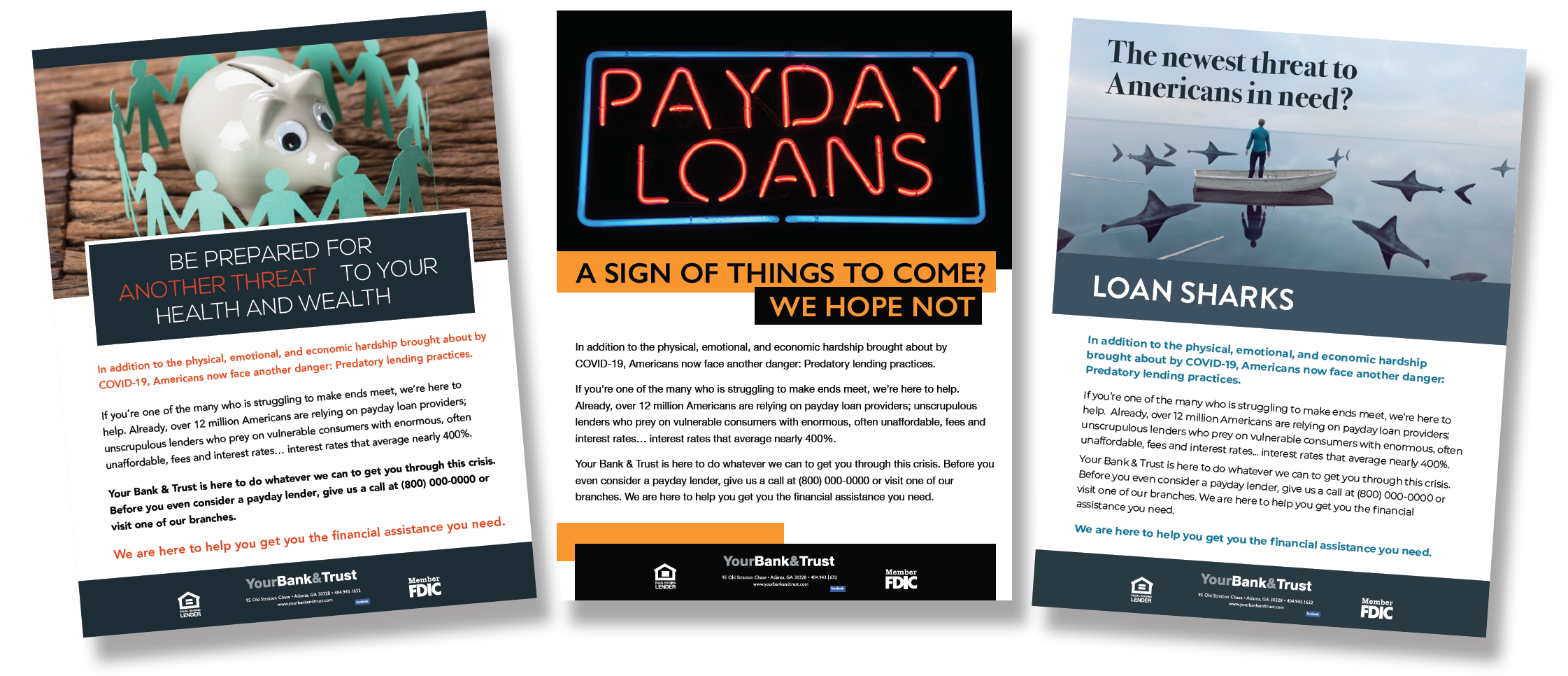
In addition to the physical, emotional, and economic hardship brought about by COVID-19, Americans now face another danger: Predatory lending practices.
On July 7, CNBC ran a story entitled, New payday lending rules could leave 12 million Americans exposed to unaffordable payments. In it, Alex Horowitz, senior research officer with Pew Charitable Trusts’ consumer finance project, said “that by eliminating the ability-to-repay protections, the Consumer Financial Protection Bureau (CFPB) is making a grave error that leaves the 12 million Americans who use payday loans every year exposed to unaffordable payments at annual interest rates that average nearly 400%.”
Now, 12 million is a lot, for sure. But, that’s a pre-Covid-19 pandemic number. The job losses induced by COVID-19 are a catastrophic development for millions of Americans who could least afford it. The payday loan industry – comprised of companies that lend to financially vulnerable consumers while charging enormous, often unaffordable, fees and interest rates – has spent years and millions lobbying for more relaxed restrictions. And last month, they were rewarded for their efforts.
It began back in 2017, when the CFPB released a multi-part payday loan regulation that, among other things, prevented lenders from attempting to recover their money by taking it directly from a borrower’s account, as well as requiring payday lenders to check that borrowers could afford to pay back their loan on time before lending, using information such as income and living expenses.
When Mick Mulvaney took the reins at the CFPB a few years back, the bureau did an abrupt about face when it came to payday lenders. During his two years heading the bureau, among other things, Mulvaney torpedoed efforts to impose tighter restrictions on short-term payday loans and put an end to an investigation into a South Carolina lender accused of charging interest rates of nearly 1,000%. He also received nearly $63,000 in campaign funding from payday lending groups.
With its recent ruling to eliminate the ability-to-pay protections, the CFPB has put millions of Americans at risk at a time when they are increasingly looking for ways to make ends meet. One out of three Americans has lost income because of the pandemic, according to the Financial Health Network’s 2020 U.S. Financial Health Pulse, a survey of over 2,000 U.S. adults fielded between April 20 and May 7, 2020.
It couldn’t get any worse, right? It sure could.
While Americans engage in a financial struggle and payday lenders bask in the glow of shattered, Obama-era financial restrictions on predatory loans, U.S. banks are tightening standards on credit-card loans, auto loans, and mortgages. In fact, banks are tightening lending standards at the fastest rate since the 2008 financial crisis.
Credit card limits are being sharply reduced, and the minimum qualifying score for credit cards has increased. Auto loan standards have tightened some, but not like other forms of consumer credit; it helps when people don’t have a job to drive to. According to Barron’s Banks are Tightening Lending Standards like it was 2008 Again, “it’s understandable why lenders wouldn’t want to get exposure to borrowers who could be losing their jobs or facing pay cuts.”
Unfortunately, that is where millions of Americans are right now, and the number will more than likely grow over the coming months. Americans need money. Between skyrocketing healthcare costs, a lack of safety net, and now unemployment, these are desperate times for many people. Unfortunately, many will fall prey to a payday lender.
Unless a local bank is there to help.
About Bank Marketing Center
Here at BankMarketingCenter.com, our goal is to help you with that vital, topical, and compelling communication with customers; messaging that will help you build trust, relationships, and with them, your brand. Our predatory lending ads are a good example:

To view our messaging, both print and digital – ranging from product and brand ads to in-branch brochures and signage – visit bankmarketingcenter.com. Or, you can contact me directly by phone at 678-528-6688 or email at nreynolds@bankmarketingcenter.com. As always, I would love to hear your thoughts on this subject.